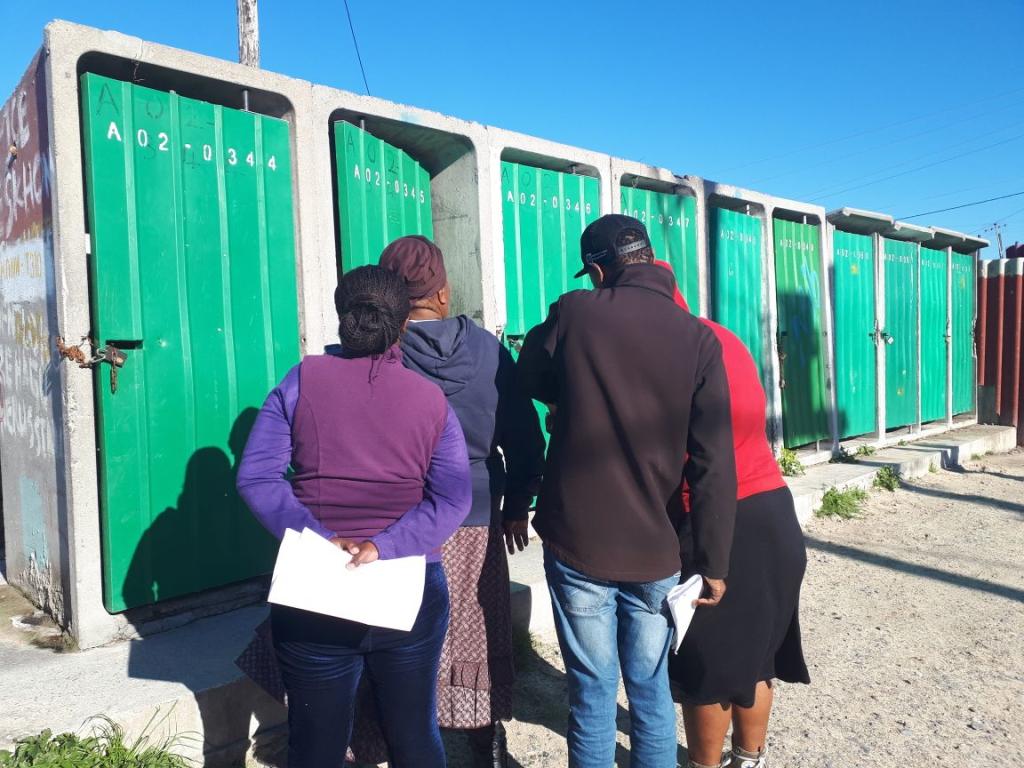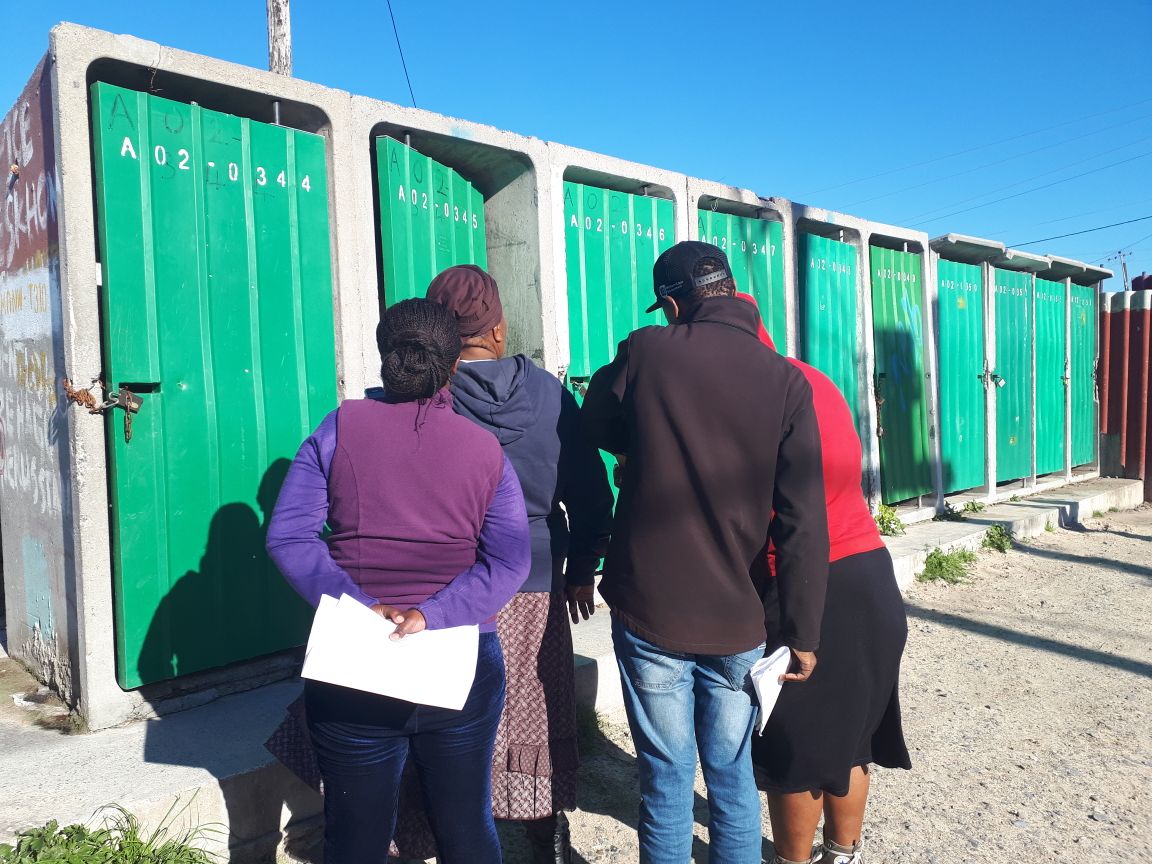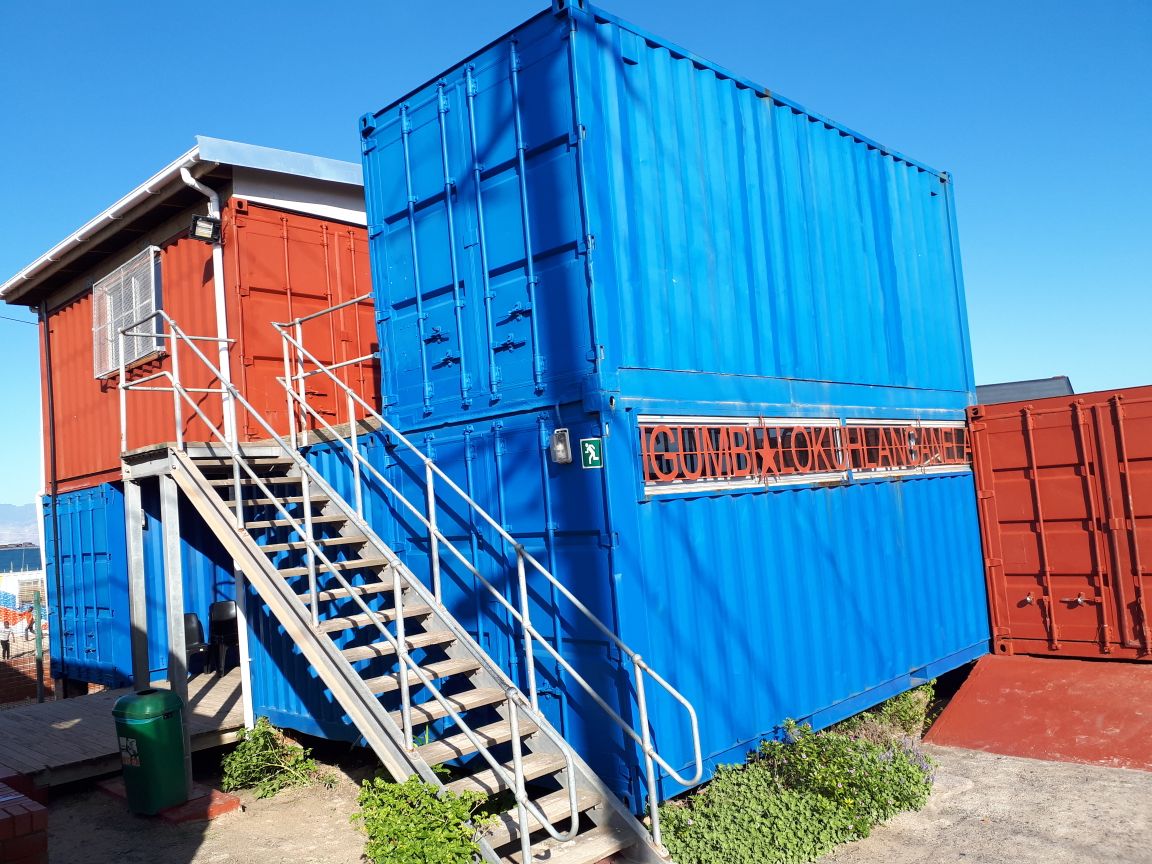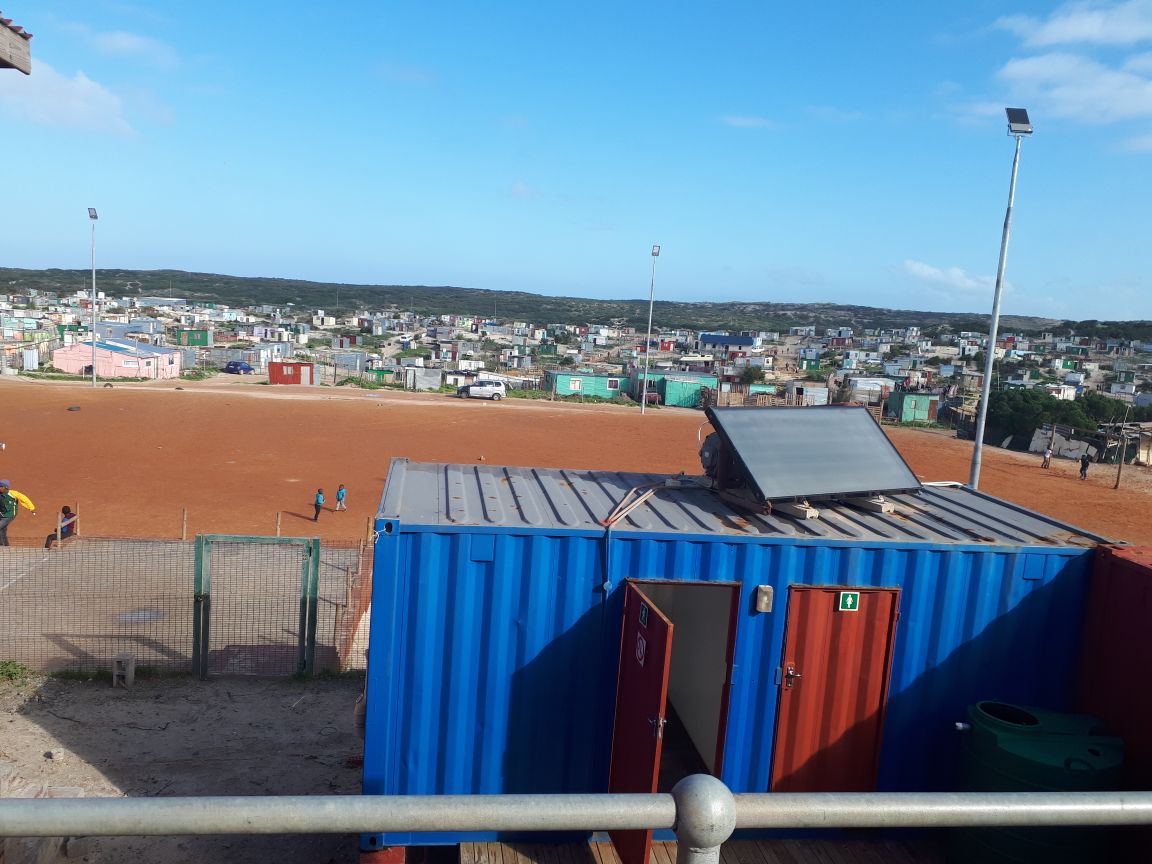VPUU & CitySpec - a reflection by Tokollo Noko

Over the June holidays, I was able to observe how VPUU (Violence Prevention Through Urban Upgrading) prepares their field workers to use CitySpec, the mobile tool used for reporting faults on broken taps and toilets. The training was conducted at the active box, situated in Monwabisi Park, Khayelitsha.

There were eight workers, of which 7 were female. The age ranged between mid-30s to 60. It seems there might have been some miscommunication when they were interviewed for the job as most of them did not know what VPUU was and how they would be involved with it. Part of the introduction was to introduce VPUU, what it does, and what CitySpec is, as well as where they (the field workers) fit in the organizational context, including the City of Cape Town, which employs them.
My task was to simply observe the training sessions, in particular how field workers learned to use CitySpec through both the theory and practical aspects of the sessions.
The practical sessions entailed navigating the map to find some taps and toilet blocks located nearby and using CitySpec to create a report for an item. The theory sessions included being taught the different fault codes and how to correctly identify the report item; as well as how to read the map and the responsibilities associated with their job.
One of the field visit days was used to create reports on taps and toilets. This task enabled the workers to practice the steps required for reporting an item. The training week was concluded with a test, which served as feedback to the supervisor, with regards to which workers would require a bit more help to become accustomed to using the tool.

I found the week to be of invaluable experience for several reasons. There were things I had taken for granted. For example, knowing how to type on a phone or locating the Wi-Fi icon - this had to be taught to some workers. All the workers were Xhosa speaking and had little understanding of English. That said, the training sessions were conducted in isiXhosa. Although I initially thought it would be difficult to explain technical aspects of the tool, the supervisor explained them well and most workers seemed to grasp them quickly.
However, during the field practical, it became evident that language was still a barrier in reporting items correctly.
Firstly, CitySpec is in English, a language they are not familiar with. Secondly, in certain instances, what the team communicated in Xhosa did not equate to the same meaning on CitySpec, when translated to English. This resulted in discrepancies between what was observed in the field and what was recorded.
It was also interesting to observe how differently individuals participated in the sessions - some were very eager to show their understanding, answering questions and performing tool demonstrations, whilst others were quieter and seemed intimidated when required to use the phone to create reports.
In conclusion, I found the week to be informative. I now have a better understanding of the work that VPUU does and the impact its involvement has made in the community of Monwabisi Park. I learned that observing how end users of a technology use an application in a given environment, should be an important part of developing applications.
Written by Tokollo Noko
---
Tokollo's research seeks to understand user experiences, with “experience” being defined by the Activity Checklist - a checklist which seeks to highlight the contextual factors that affect how a technology is used in a particular environment.
